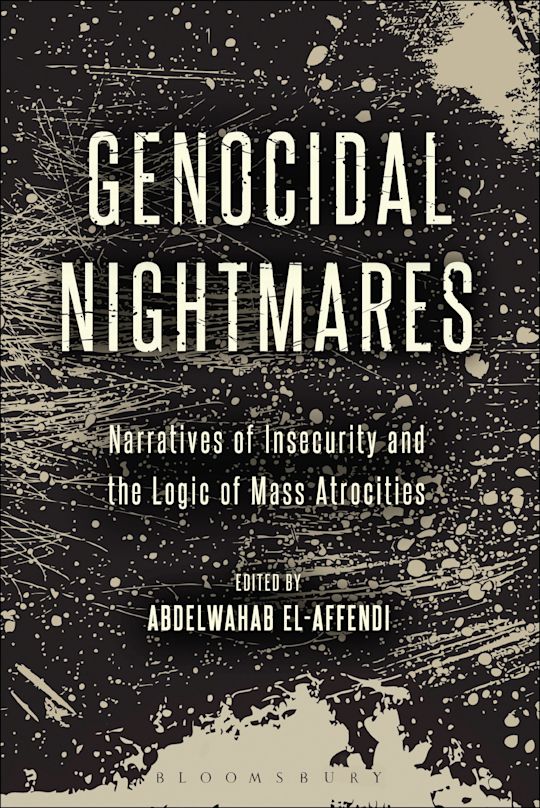Genocidal Nightmares
Narratives of Insecurity and the Logic of Mass Atrocities
Genocidal Nightmares
Narratives of Insecurity and the Logic of Mass Atrocities
This product is usually dispatched within 3 days
- Delivery and returns info
-
Free US delivery on orders $35 or over
Description
This book offers a novel and productive explanation of why 'ordinary' people can be moved to engage in destructive mass violence (or terrorism and the abuse of rights), often in large numbers and in unexpected ways. Its argument is that narratives of insecurity (powerful horror stories people tell and believe about their world and others) can easily make extreme acts appear acceptable, even necessary and heroic. As in action or horror movies, the script dictates how the 'hero' acts. The book provides theoretical justifications for this analysis, building on earlier studies but going beyond them in what amount to a breakthrough in mapping the context of mass violence. It backs its argument with a large number of case studies covering four continents, written by prominent scholars from the relevant countries or with deep knowledge of them. A substantial introduction by the UN's Special Advisor on the Prevention of Genocide demonstrates the policy relevance of this path-breaking work.
Table of Contents
Foreword:Dr Francis Deng
Chapter I: Introduction: Narrating the Precariousness of Human Decency
Abdelwahab El-Affendi
Chapter II: Killer Narratives: Collective Nightmares and the Construction of Narrative Communities of Insecurity
Abdelwahab El-Affendi
Chapter III:
Imagining Nationhood, Framing Postcoloniality: Narrativising Nigeria Through the Kinesis Of (Hi)Story
James Tar Tsaaior
Chapter IV:
Sudanese Stories: Narratives of Grievance, Distrust and Fatalism in Recurrent Violence
Alex de Waal
Chapter V:
General Elections and Narratives of Violent Conflict:
The Land Question and Civic Competence in Kenya
Kenneth Inyani Simala
Chapter VI:
The Violence of Security, Lethal Representations, and Hindu Nationalism in India
Dibyesh Anand
Chapter VII:
Memories of Victimhood in Serbia and Croatia from the 1980s to the Disintegration of Yugoslavia
Slobodan G. Markovich
Chapter VIII:
Insecurity, Victimhood, Self and Other: The Case of Israel and Palestine
Ilan Pappe
Chapter IX:
Resistance Narratives: Palestinian Women, Islam and Insecurity
Mari Holt
Chapter X:
State Insecurity and Intergroup Violence: The Case of Modern Iraq
Ali A. Allawi
Chapter XI:
Islamophobia as a Securitisation Narrative: The Exclusionary Logic of Imperial Geopolitics Nafeez Mosaddeq Ahmed
Chapter XII:
Killer Narratives in Western Popular Culture
Anas S. Al-Shaikh-Ali
Concluding Remarks
Authors' Biographies
Product details

| Published | Jul 28 2016 |
|---|---|
| Format | Paperback |
| Edition | 1st |
| Extent | 272 |
| ISBN | 9781501320231 |
| Imprint | Bloomsbury Academic |
| Illustrations | 5 halftone illus |
| Dimensions | 9 x 6 inches |
| Publisher | Bloomsbury Publishing |
Reviews

ONLINE RESOURCES
Bloomsbury Collections
This book is available on Bloomsbury Collections where your library has access.




































